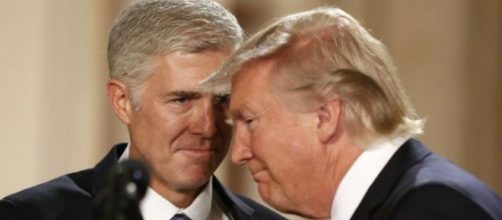After a long battle, Neil Gorsuch, the man nominated by Donald Trump for the Supreme Court of the United States, managed to take the job as the new U.S. Supreme Court magistrate. He is the youngest judge to reach the highest court in the country in the last 25 years. To ensure their election, the Republican senators had to change the rules of appointment of judges, which is known as the "nuclear option." With him in the Supreme Court, the Conservatives are again the majority.
An 'originalist'
On January 31, when President Donald Trump nominated Gorsuch as a Supreme Court Justice, he noted that he had an extraordinary track record.
Thus, Trump was aiming to fulfill his electoral promise to nominate a candidate made "in the mold of Scalia." Like the late magistrate, Gorsuch is known for supporting "textualism," or interpreting the law according its plain text.
Neil Gorsuch is also considered an "originalist," which means that he believes that the Constitution should be interpreted as the Founding Fathers wrote, something that, although not always, usually leads to conservative decisions. Gorsuch does not hide his admiration for Scalia, whom he has described as a "lion of the law." Gorsuch is the man called to break the tie in at least six controversial cases
Controversial cases
The Trump migration veto: President Trump's controversial executive order that bars travel to the United States from people in six Muslim-majority countries, frozen by the decision of two federal judges, is likely to reach the Supreme Court later this year.
Judge Gorsuch repeatedly refused to comment on the matter during the confirmation hearings, however, it would be a strong public test of his independence from Trump, who appointed him to court.
Church and the Federal States:
One of the first cases that Judge Gorsuch will attend to, probably next week, has to do with the separation of the church and the federal state.
A school run by Lutheran Trinity Church in Missouri called for a part of a state program that leverages recycled tire rubber to cover bumps in playgrounds.
However, the Missouri Department of Natural Resources denied the request, arguing that the state constitution prohibited funding for religious organizations. Representing the Church, the Defending Freedom Alliance said that the denial violated the First Amendment. The case was accepted by the court in January last year, but has been stalled for 15 months.

